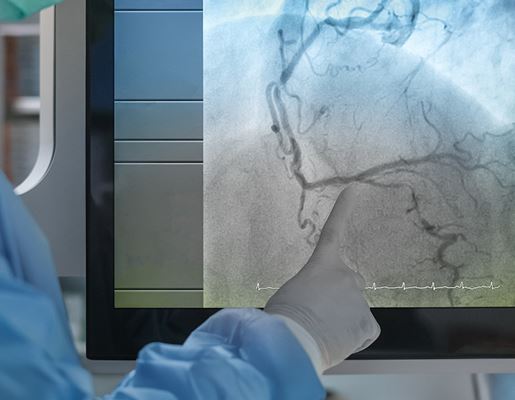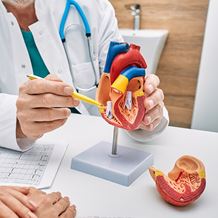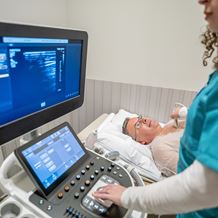What is coronary artery disease?
Coronary artery disease, sometimes referred to as coronary heart disease, is a common heart condition that usually develops over many years before symptoms become noticeable. The coronary arteries are blood vessels that sit on the surface of your heart. They are responsible for supplying it with all the blood, oxygen, and nutrients it needs to operate efficiently. Coronary artery disease occurs when a gradual build-up of plaque hardens and narrows the arteries restricting the blood flow to the heart. Symptoms may not be obvious until a significant blockage causes a heart attack. In some patients, coronary artery disease is a chronic condition where the arteries gradually narrow over many years. In other patients, the condition is acute resulting in an emergency episode such as a heart attack. Coronary artery disease is the most common form of heart disease in Australia.
Symptoms and causes
The gradual build-up of plaque (atherosclerosis) causes coronary artery disease and so you may not experience any symptoms for a long time. As it collects along the artery walls, they become narrow and stiff, making it increasingly difficult for blood to reach your heart. This condition is more prevalent in older patients who then have a higher risk of developing coronary artery disease.
When the heart does not get enough blood, common symptoms include chest pain, burning, tightness and heartburn-like feelings. You may also experience shortness of breath, dizziness, or painful limbs. In severe cases where the blood flow is completely blocked, you may experience a heart attack and will require immediate medical attention.
How is it diagnosed?
Your doctor will perform a series of tests as well as a thorough physical examination in order to diagnose coronary artery disease. These may include:
How is it treated?
Although coronary artery disease cannot be cured, there are many treatments available that can help you manage your symptoms so that you lead a full and active life. Maintaining a healthy lifestyle is an important aspect of managing the disease, and your doctor will talk to you about dietary advice, nicotine and alcohol avoidance and regular exercise. The earlier you begin to implement changes, the better protected your heart health will be. Your doctor may also recommend medication to lower your blood pressure, manage your heart rate and prevent clotting. In some cases, surgery may be required to help improve the blood flow.

Other conditions
What's next?
If you have been experiencing heart-related symptoms, book an appointment with our cardiac services specialist today.
Our specialists in Cardiac Services
View all specialists





